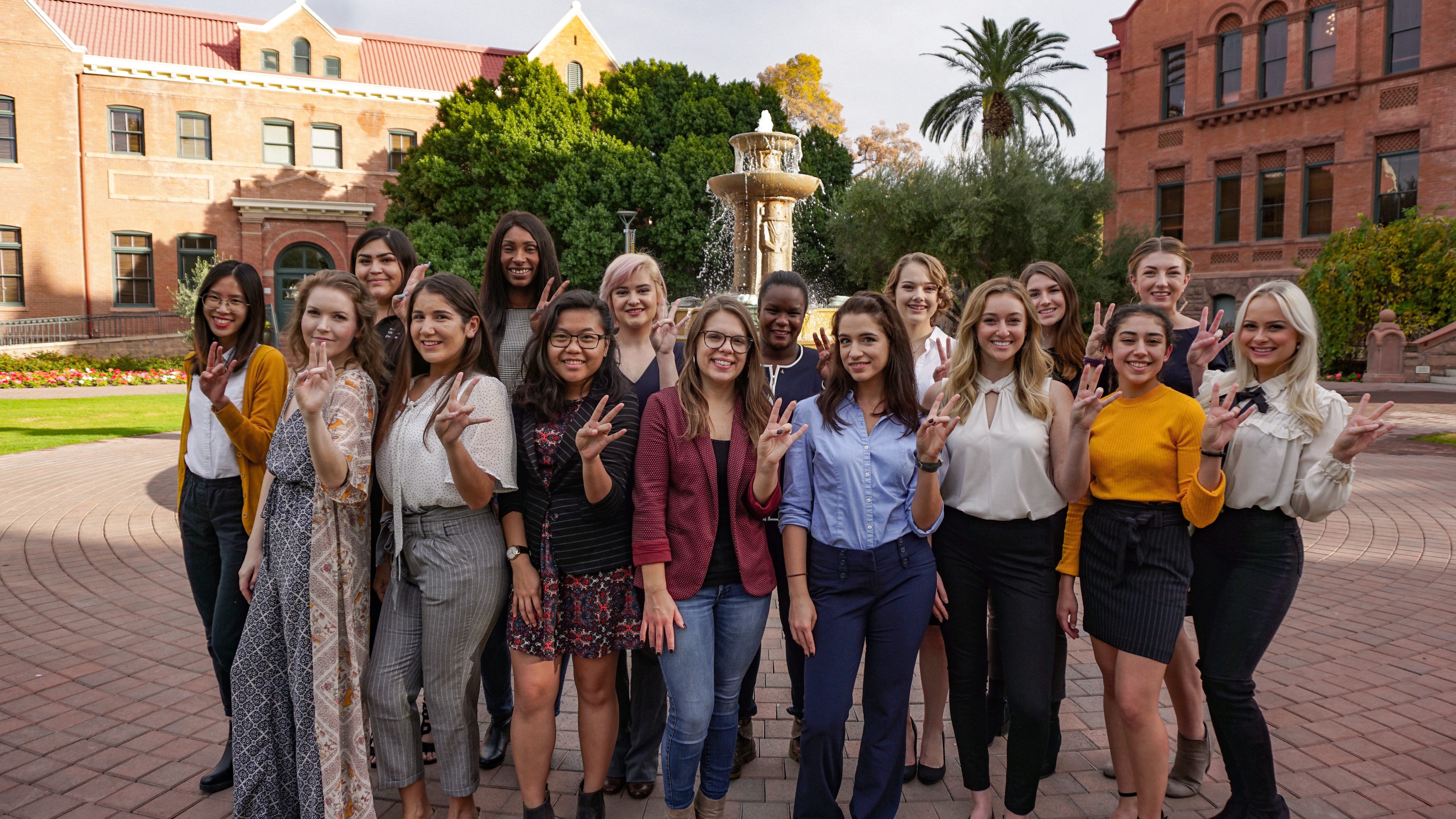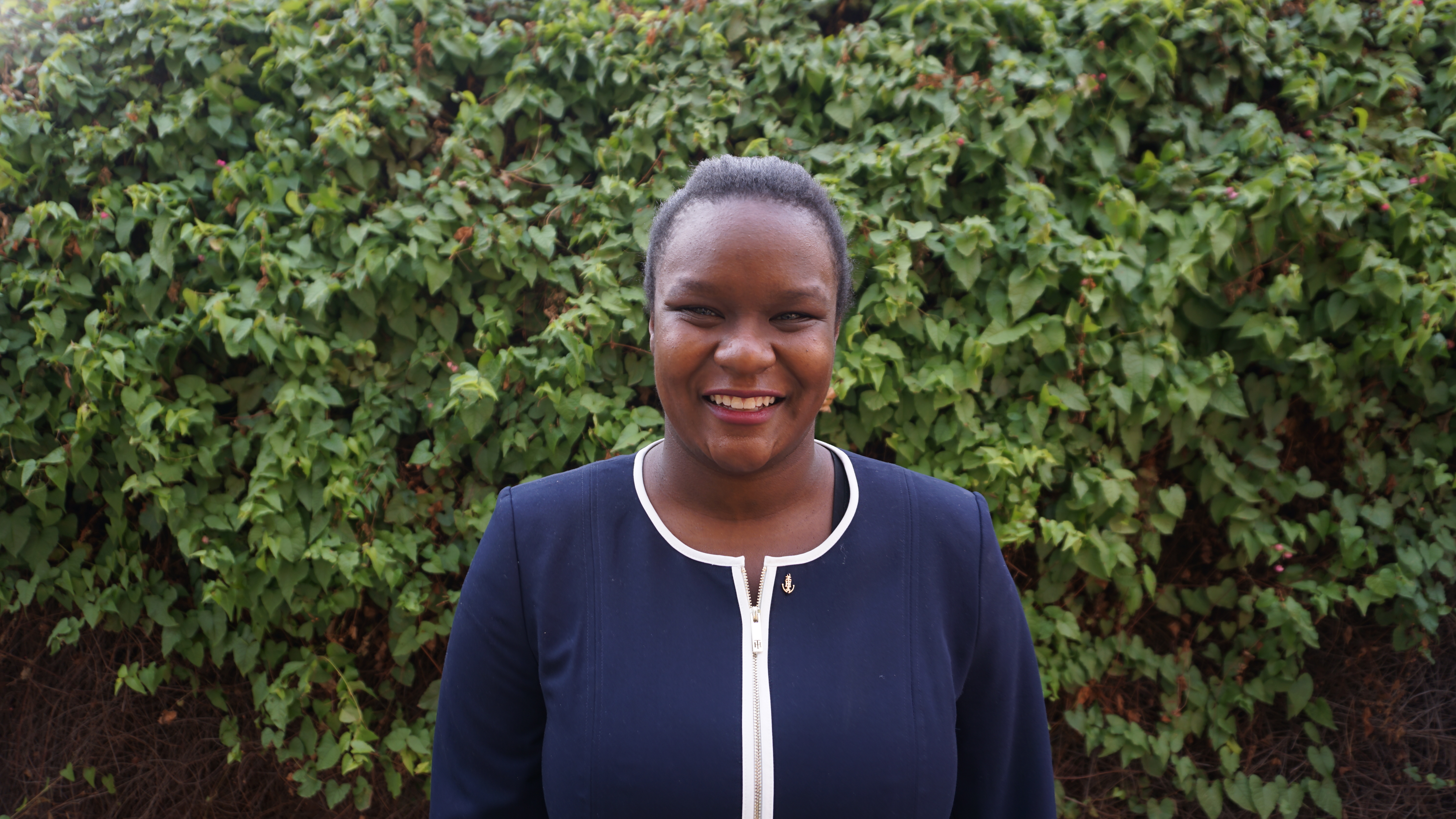Student research aims to prevent sexual violence before it starts
A student-led research project that was conducted this spring is aiming to understand what college students know about sexual health and what kinds of education can help prevent sexual violence.
ASU senior Paula Kibuka Musoke, who is a biochemistry and global health major, has been working as a peer educator for the Sexual and Relationship Violence Prevention Program at ASU for the past two years. She recently conducted research through in-person interviews of ASU students that can help influence violence prevention programming for Sun Devils.
Musoke, an international student from Norway, said she was inspired to pursue the project because of how the issue is portrayed in the media as both sensationalized and unsolvable.
“What I learned working for Sexual and Relationship Violence Prevention at ASU is that sexual violence is actually completely preventable,” she said.

ASU's Sexual and Relationship Violence Prevention Program team
Working from the public health idea of primary prevention, Musoke said her research will help customize outreach for Sun Devils. “You can educate people enough such that you can prevent sexual violence from happening at all,” she said.
Because she has spent time organizing events such as Denim Day and Wear Purple Day to raise awareness on campus about the assumptions people have about sexual and relationship violence, Musoke’s research was informed by a breadth of experience in peer-to-peer education that happens on ASU’s campus to promote healthy relationships.
“I was very driven by the hope that we can prevent sexual violence in the future if we just educate people,” she said.
The in-person interviews of 24 current ASU students zeroed in this spring on trying to figure out what college students know about sexual health and sexual violence before arriving at college: based on what they had learned in school, from media or from their peers. ASU students were asked to explain what sexual violence is and talk about the gender norms or stereotypes associated with sexual violence across different intersections of gender, race, sexuality or other identities.
“The main problem is that a lot of people aren’t aware of what [sexual violence] is or how it can occur. And because of the media we have a lot of stereotypes and myths as to what a perfect victim is and who the perfect perpetrator is,” she said.
The outcomes of the research will be given to the Sexual and Relationship Violence Prevention Program for their consideration in enhancing their programming. Musoke’s research will benefit the student-led groups and events that operate throughout the academic year, raising awareness about domestic violence, stalking, sexual violence and more.
“In order to prevent sexual violence, it is critical that we translate research into practice, and a project that is entirely student-driven will speak to the needs of our community,” said Kimberly Frick, associate director of Sexual and Relationship Violence Prevention.
“Learning more about the level of knowledge that students are already coming to ASU with will help us to develop programs that build skills necessary to prevent violence and promote community well-being. I am proud of Paula’s contributions to our program and her drive to develop solutions to this complex public health, social justice and human rights issue.”

Paula Kibuka Musoke
The research project was part of Musoke’s U.N. Millennium fellowship experience, which she credits with reinforcing her drive to pursue global work in her career and giving her confidence in her own research. She also credits her mentor, Professor Amber Wutich, for her help and support from the very beginning.
While she is graduating in May, Musoke has left her mark in many ways at ASU, including in her involvement with GlobeMed, a student-led nonprofit working to end global health inequity, and as an ambassador at The College, where she loves to share with prospective students how many great opportunities ASU offers.
But one of her most lasting legacies will be her work on sexual and relationship violence prevention. She said the programming and education work is invaluable because it can reach everyone: survivors, perpetrators, bystanders and community members.
“What I’ve learned from Sexual and Relationship Violence Prevention is that there isn’t really a perfect scenario. We’re trying to figure out what those cultural norms are in an effort to end sexual violence or at least help ASU students be better educated on the topic,” she said.
“The more people we educate, the more likely it is that sexual violence will not occur,” Musoke said.
The Sexual and Relationship Violence Prevention Program and student groups will be hosting events throughout the month of April to mark Sexual Violence Awareness Month to reach Sun Devils across ASU and educate students about healthy relationships and the resources available to them.